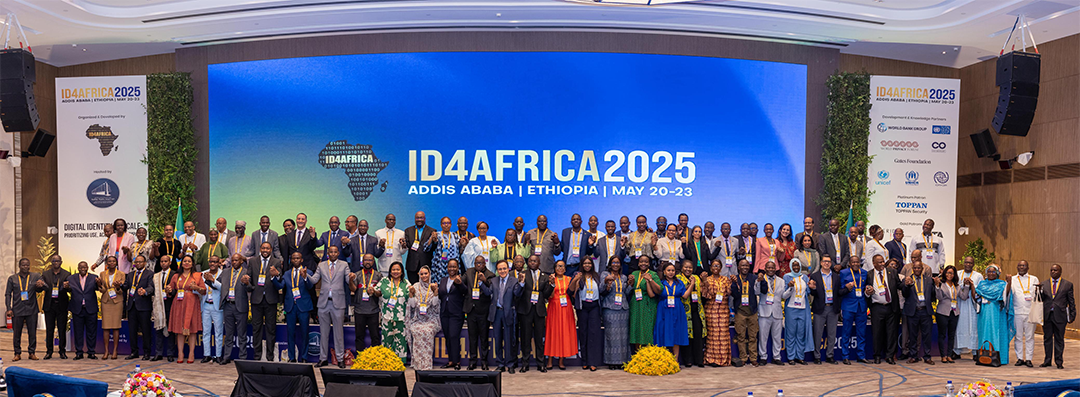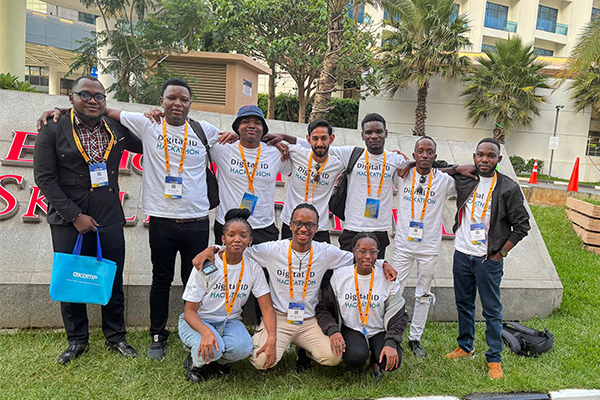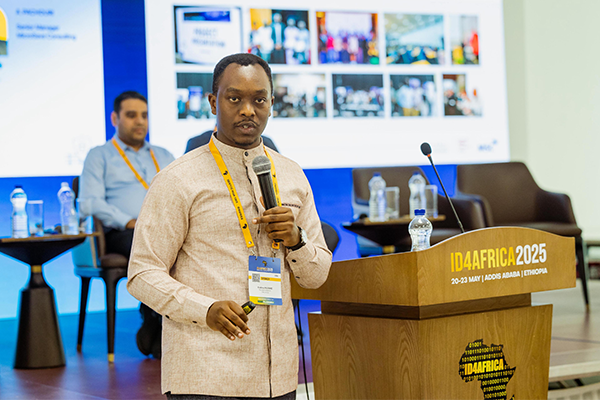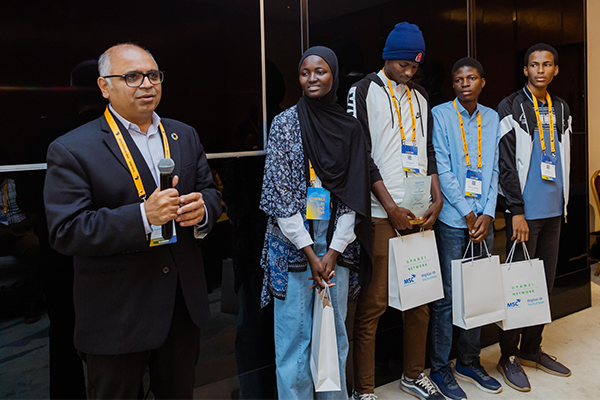Forging the pan-African future of digital identity
Sarah Lindley
Jun 13, 2025
Throughout the first decade of meetings and sessions hosted by the pan-African identity-for-all movement ID4Africa, the ranks of presenters were filled almost entirely by top-level government officials and industry leaders.
This year, at ID4Africa's tenth Annual General Meeting (AGM) in Addis Ababa, Ethiopia, something new happened; as finalists in the Upanzi Network's inaugural Digital ID Hackathon, 32 university students from across Africa took the international stage to showcase their applications for locally relevant digital identity use cases.
The students were members of eight teams comprising the winners of four regional hackathons co-organized by the Upanzi Network and MicroSave Consulting. At the AGM—a globally significant meeting in the digital ID field—the teams presented their cases to compete for the overall prize.
To understand digital ID and the potential benefits of its implementation, it's important to take a step back and think about identity, says Andrew Musoke (MSIT '20), senior Upanzi Network research engineer and organizing lead for the Digital ID Hackathon.

ID4Africa is a well-attended, globally significant meeting in the digital identity field.
"Identity is the need for people to be known, to themselves and to the governments in charge of making sure their citizens are well taken care of," Musoke says.
As African nations increasingly adopt digital technologies, individuals and governments must be able to enter agreements of mutual trust regarding identity.
"How does the government trust that the people using their digital systems are who they say they are? And how do citizens using government systems trust that the people and services they interact with have their best interest at heart?" asks Musoke. "That is where digital identity comes in: to ensure a verifiable and secure trust during interactions in the digital space of governance."
Organizing hackathons for students to develop digital ID use cases is no easy feat, but it opens doors for a wide range of positive outcomes. On the simplest level, use cases make the utility of digital ID clear, which could increase its adoption among people who might otherwise hesitate to get digital ID credentials.
Creating an environment that encourages the development of locally sourced use cases also contributes to capacity building and helps minimize vendor lock-in. When more digital ID technologies are developed, maintained, and upgraded locally, reliance on external sources is reduced.
"The challenge is: how can we build local capacity, within our countries, that can sustainably support the digital identity systems we are deploying?" says Musoke.
The answer lies in investing in the upcoming generation's expertise and confidence with digital ID technologies.
"We were interested in running the hackathon for university students particularly because we believe that they have the technical knowledge to be able to benefit maximally from the program," Musoke says. "As the students go through the program, they come out at the other end with a renewed understanding of the role that digital identity can play within their communities, and how it can help solve problems they're already facing."
Yet most applicants—like most people in general—had hardly conceived of digital ID prior to the hackathon.
"We start from the question 'what is digital identity?' and we take them through a heavily mentored program, with webinars that teach them how digital identity is impactful, and how they can eventually develop working prototypes of these digital identity use cases," explains Musoke.
Across the regional hackathons in Eastern, Northern, Southern, and Western Africa, around 600 students from more than 20 countries applied for the initial ideation phase. From there, 24 teams of 2–5 students advanced to the prototyping phase, with the support of industry experts and mentors and access to the Modular Open Source Identity Platform (MOSIP) to bring their visions to life.
One of the key things that differentiates us from just any other hackathon is that we continue to benefit the students even after the event is done.
Andrew Musoke (MSIT '20), Senior Upanzi Network Research Engineer, CMU-Africa
There was significant gender diversity among the contestants, with 30 percent overall female participation and each team having at least one active female contributor.
The top two teams from each region received prizes including support from the business incubation program offered by CMU-Africa's Innovation Hub and sponsorship for their presentations at the ID4Africa AGM. The winning teams additionally received laptops and opportunities to pursue paid internships with the Upanzi Network, which they are now completing.
Team Retro, from Senegal, took the grand prize for their digital ID innovation that ensures that information about blood type, allergies, and medications for individuals in medical crises is readily available to first responders. The use case could potentially save lives of people requiring transfusions, as critical time that otherwise must be devoted to blood testing would be saved.
From Rwanda, the runner-up was a team consisting of CMU-Africa students, SmartTRAIS. Their design provided a method for digital ID to streamline the distribution of subsidies to farmers for agricultural inputs like seeds and fertilizers, preventing the potential misappropriation of funds meant to help alleviate poverty.
Third place went to Bots Bots, a team from Botswana who presented a way to integrate national tax, employee, education, and identity systems to help the government track student loan payments, ensuring future students get the maximum value out of government education funds.
At the AGM, the submissions were reviewed by a diverse panel of judges, each with high impact careers and expertise with digital infrastructures:
- Kanwaljit Singh, deputy director of digital public infrastructure at the Gates Foundation
- Rosemary Kisembo, executive director of the National Identification and Registration Authority, Republic of Uganda
- Selamawit (Selam) Reta, software product manager and project manager with more than 10 years of experience with the National ID Program of Ethiopia
- Mphatso Augustine Sambo, principal secretary of the National Registration Bureau, Republic of Malawi
Musoke counts this year's inaugural hackathon as a success, but the team has plans to make future hackathons even bigger and better. In place of preliminary regional hackathons, the competition will open to the entire continent simultaneously. The team also hopes to create a separate category in the hackathon for private sector professionals to compete.
Through the upcoming Digital ID Youth Ambassador Initiative, previous competitors will also spread the word about the hackathon to contribute to future recruitment at their universities, conferences, and beyond. "One of the key things that differentiates us from just any other hackathon is that we continue to benefit the students even after the event is done," says Musoke. "We want everyone who has passed through the program to enter a community of practice, so that everyone in that community can benefit."
And though 20 countries is a great start, Musoke knows a hackathon with participation from all 54 African countries could be on the horizon. But to accomplish this goal, more collaborations and partnerships will be necessary.
"We always need to have contributions from the ecosystem. We're always looking for mentors, judges, people who can offer internships, career opportunities, and research collaborations for the students, as well as people to welcome us and invite us to their countries and their universities," Musoke says. "I always want to extend a call to collaboration."


